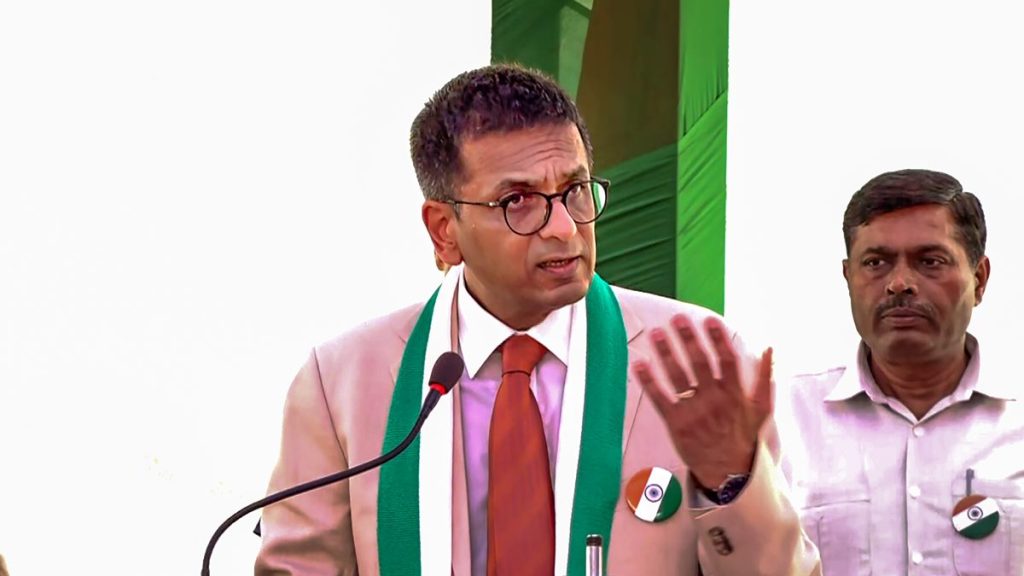Chief Justice of India D Y Chandrachud on Tuesday said that the “greatest challenge” before Indian judiciary is to eliminate the barriers to accessing justice and the functionality of courts is “determined by how effectively they can answer the call of Constitutional duty”.
He further said that the judges and lawyers should conduct themselves in a manner that inspires confidence about the independence and integrity of the legal process.
Addressing the Independence Day celebrations organised by the Supreme Court Bar Association (SCBA), “As I look towards the future, I believe the greatest challenge before Indian judiciary is to eliminate the barriers to accessing justice,” he said.
“We have to enhance access to justice procedurally by eliminating the constraints which prevent citizens from approaching courts, and substantively by building confidence in the court’s ability to dispense justice. And we have the road map in place to make sure that the future Indian judiciary is inclusive and accessible to the last person in the line,” the CJI added, as quoted by The Indian Express.
Speaking about the expansion plan of the Supreme Court, the CJI said, it will include constructing a new building to accommodate 27 additional courts, 51 judges’ chambers, 4 registrar court rooms, 16 registrar chambers, and other requisite facilities for lawyers and litigants.
The new building will “reflect the Constitutional aspirations, beliefs, and priorities of the people, in addition to providing a space which facilitates access to justice”.
The work will be undertaken in two phases, he added.
CJI Chandrachud also said that the top court will soon release a handbook on combating gender stereotypes in judicial decision-making.
“These efforts are aimed to ensure that we look inwards, question our biases, and insulate judicial institutions from embodying and entrenching those biases,” he said.
Meanwhile, referring to Prime Minister Narendra Modi’s Independence Day speech earlier in the day, the CJI said, “The PM today in his speech at Red Fort mentioned about the efforts of the Supreme Court to translate the judgments in regional languages. Up to now, 9,423 judgments have been translated into regional languages.”
PM Modi, during his speech, laid emphasis on teaching the mother tongue.
“I thank the Supreme Court. It has said that now the operative part of the judgment will be translated in the language the litigant speaks. The relevance of mother tongue is increasing,” said Modi.
CJI Chandrachud, who was seated in the audience, responded with a namaste gesture.


